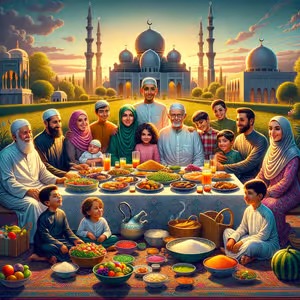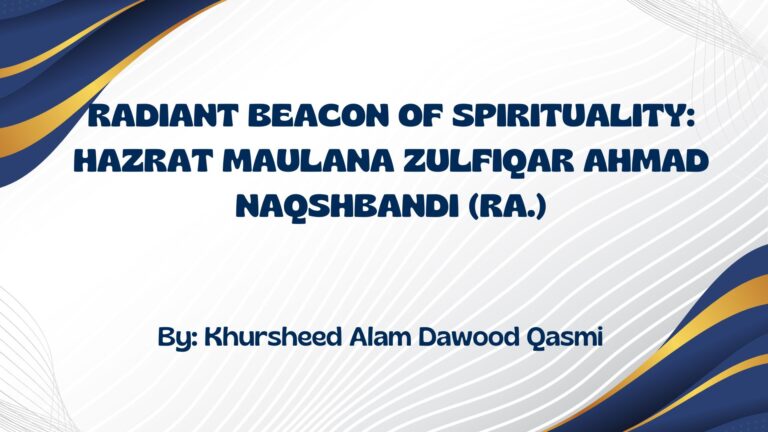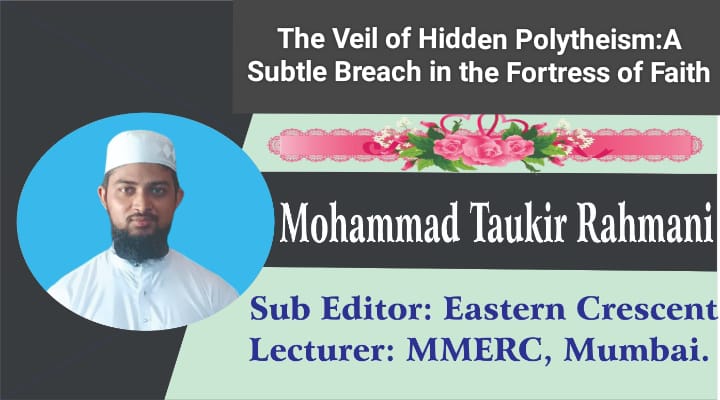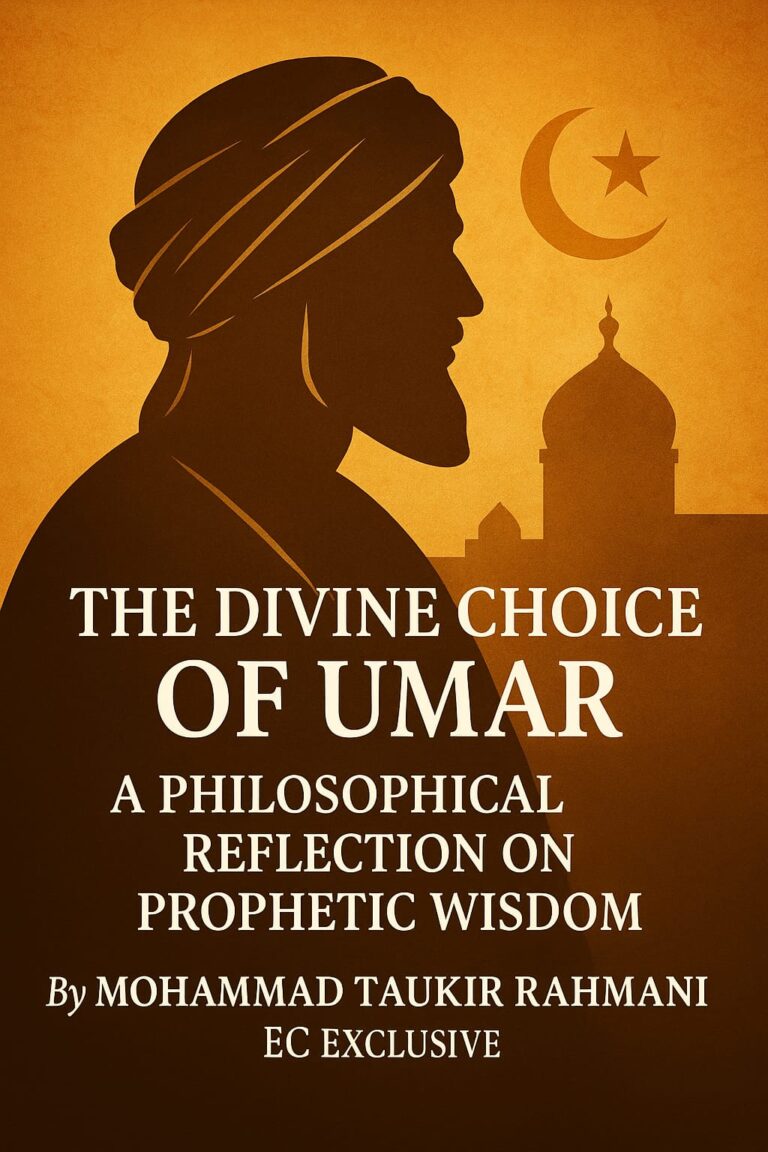
The Wisdom Behind Islamic Festivals: A Path to Social Harmony
The Wisdom Behind Islamic Festivals: A Path to Social Harmony
By: Mohammad Taukir Rahmani
EC Exclusive
Festivals and celebrations serve as the cultural identity and reflective mirror of a nation or community’s intellectual and social temperament. They are not merely occasions of joy but also embody a nation’s intellectual maturity, spiritual refinement, and civilizational depth. Islam, as a comprehensive code of life, provides unwavering guidance to its followers at every step. Its beauty and inclusivity lie in its ability to regulate every facet of human life, fulfilling natural needs in a manner that is both virtuous and superior.
When the divine light of Islam illuminated the world, societies were deeply entrenched in various customs and traditions. The Arabs, in particular, were perceived as a primitive and ignorant people. However, Islam not only redefined their identity but also elevated their civilizational standing. The Prophet saws), in his infinite wisdom, did not abruptly abolish these traditions; rather, he replaced them with superior and more meaningful alternatives. It is an undeniable truth that when deeply ingrained customs, particularly those linked to faith and belief, are suddenly eradicated, people often resist and rebel. However, when provided with an alternative that is nobler and more fulfilling, they embrace it wholeheartedly and take immense pride in it.
In the pre-Islamic era, the Arabs were deeply devoted to idol worship, but Islam redirected their worship towards the One True God, Allah. Similarly, when the Prophet (saws) arrived in Madinah, he observed that its inhabitants celebrated two specific days with festivity and merriment. He inquired, “What are these days?” The companions replied, “These are the days we have been celebrating since the era of ignorance.” The Prophet (saws) then proclaimed, “Allah has replaced these two days with two better days for you: Eidul Fitr and Eidul Adha.” (Sunan Abi Dawood: 1134)
This profound example epitomizes Islam’s wisdom and sagacity. It illustrates that true reform lies in understanding the psychological fabric of a society and guiding it accordingly. When people have an inherent inclination towards celebration, suppressing it proves counterproductive. Instead, channeling it towards a righteous and meaningful culture is the hallmark of wisdom and discernment.
The institution of Eid in Islam conveys a powerful message of unity, compassion, and social harmony. These occasions transform individual happiness into collective festivity. The obligation of Sadaqatul Fitr on Eidul Fitr ensures that no underprivileged person is deprived of the joys of celebration. Similarly, the prescribed distribution of sacrificial meat among the needy and relatives on Eidul Adha exemplifies Islam’s unwavering commitment to social equity, ensuring that no one is excluded from the spirit of festivity. Such emphasis is so profound that neglecting the less fortunate on these occasions can render one’s worship incomplete.
This unique and unparalleled feature sets Islam apart from other systems. It offers a sublime synthesis of devotion and celebration, seamlessly blending spiritual fulfillment with social equity. This exquisite fusion of aesthetics, logic, and philosophy elevates Islam as a complete and unparalleled way of life.
The distinguished intellectual, Maulana Abul Kalam Azad, eloquently encapsulated the essence of Eid in these profound words:
“If Eid upholds the sacred symbols of Islam, rejuvenates the religious spirit, showcases the triumphs of faith before the world, renews the covenant of divine love and allegiance, and serves as a unifying bridge among all Muslims, then undoubtedly, it is truly Eid. Otherwise, it is nothing more than a mere ritual—a date pit that we consume in the morning in the name of reviving a Sunnah, only to discard it moments later.
Eid is not a mere occasion for amusement, indulgence, and leisure. It is the epicenter of Shariah’s fulfillment, a radiant manifestation of divine sovereignty, a fountainhead of monotheism and unity, and an exalted exhibition of sincerity and purity of heart. It is through this sacred occasion that the religious fervor of any community can be assessed. If it remains intact in its original form, it signifies that faith is flourishing with full vitality. However, if it fades away or is obscured by innovations and frivolities, then it must be acknowledged that the luminous flame of that faith is diminishing.” (Al-Hilal: October 28, 1913)
You May Also Like
 Articles
ArticlesRadiant Beacon of Spirituality: Hazrat Maulana Zulfiqar Ahmad Naqshbandi (Rah.)
By: Khursheed Alam Dawood Qasmi First Acquaintance with Peer Sahib: It was around the...
 Islam
IslamHuman Creation: Existence for the Sacred Trust of Earthly Vicegerency
Human Creation: Existence for the Sacred Trust of Earthly Vicegerency By: Mohammad Taukir Rahmani...
 Culture
CultureThe Flood of Heresy: A Manifestation of Ideological Colonialism and a Trial for Islamic Consciousness
The Flood of Heresy: A Manifestation of Ideological Colonialism and a Trial for Islamic...
 Islam
IslamThe Veil of Hidden Polytheism: A Subtle Breach in the Fortress of Faith
The Veil of Hidden Polytheism: A Subtle Breach in the Fortress of Faith By:...
 Islam
IslamThe Divine Choice of Umar: A Philosophical Reflection on Prophetic Wisdom
The Divine Choice of Umar: A Philosophical Reflection on Prophetic Wisdom By Mohammad Taukir...
 Islam
IslamNothing Moves Without His Will
Nothing Moves Without His Will Mohammad Taukir Rahmani EC Exclusive In the vast landscape...

Comments (0)
Leave a Comment